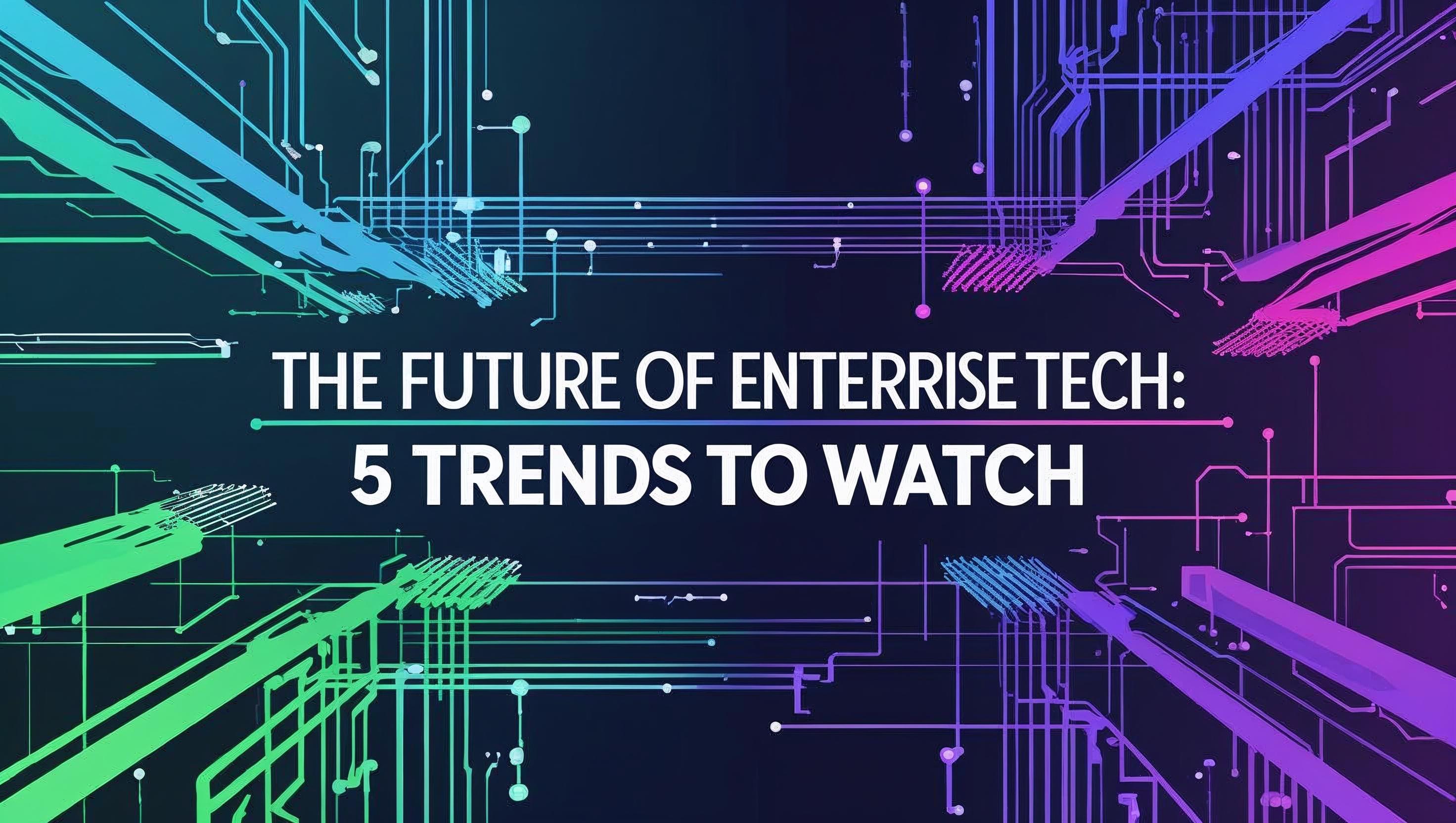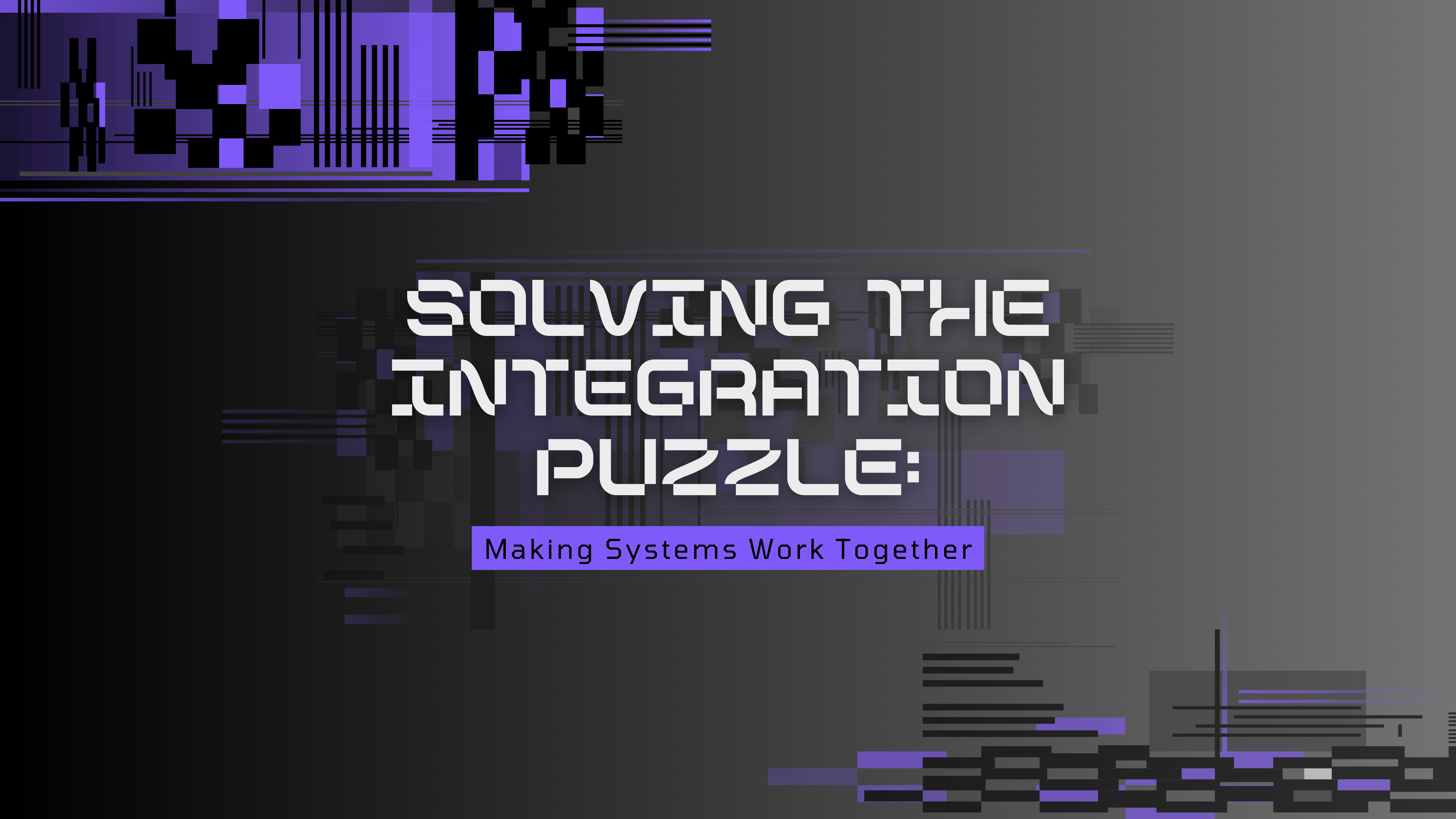The Future of Enterprise Tech
5 Trends to Watch

The Future of Enterprise Tech
5 Trends to Watch
As businesses continue to evolve in a hyper-connected, data-driven world, enterprise technology is undergoing a transformation that’s reshaping how organizations operate, innovate, and deliver value. These trends are poised to revolutionize how businesses operate, innovate, and compete in the coming years. Keeping a close eye on these developments is crucial for any organization looking to stay ahead of the curve.
Key Trends
1. AI-Powered Automation:
• Streamlined workflows
• Enhanced decision-making
• Reduced operational costs
Artificial intelligence (AI) and machine learning (ML) are driving a new wave of automation across various enterprise functions. From robotic process automation (RPA) to intelligent chatbots, AI-powered tools are streamlining workflows, enhancing decision-making, and reducing operational costs. Organizations are leveraging AI to automate repetitive tasks, freeing up human employees to focus on more strategic and creative initiatives.
2. Cloud-Native Architecture:
• Scalability and flexibility
• Faster deployment cycles
• Improved resource utilization
Cloud-native architecture is transforming how enterprises build and deploy applications. By leveraging containers, microservices, and serverless computing, organizations can achieve greater scalability, flexibility, and resilience. Cloud-native approaches enable faster deployment cycles, improved resource utilization, and reduced infrastructure costs. This trend empowers businesses to innovate more rapidly and respond to changing market demands with agility.
3. Edge Computing:
• Reduced latency
• Enhanced security
• Real-time data processing
Edge computing is bringing processing power closer to the source of data, enabling real-time insights and faster response times. By deploying compute resources at the edge of the network, organizations can reduce latency, enhance security, and improve the performance of applications. Edge computing is particularly relevant for industries such as manufacturing, healthcare, and transportation, where low latency and real-time data processing are critical.
4. Cybersecurity Mesh:
• Distributed security architecture
• Improved threat detection
• Enhanced data protection
With the increasing sophistication of cyber threats, enterprises are adopting a cybersecurity mesh architecture to protect their data and systems. This distributed security approach provides a more flexible and scalable way to secure a complex IT environment. A cybersecurity mesh enables organizations to improve threat detection, enhance data protection, and reduce the risk of cyberattacks. It adapts to changes in security requirements as new threats emerge.
5. Low-Code/No-Code Platforms:
• Citizen development
• Accelerated application delivery
• Reduced development costs
Low-code/no-code platforms are democratizing software development, empowering citizen developers to build applications without extensive coding knowledge. These platforms accelerate application delivery, reduce development costs, and enable organizations to respond more quickly to changing business needs. Low-code/no-code solutions are particularly valuable for automating workflows, creating custom applications, and integrating disparate systems.
Conclusion
The future of enterprise technology is being shaped by these five key trends. By embracing AI-powered automation, cloud-native architecture, edge computing, cybersecurity mesh, and low-code/no-code platforms, organizations can unlock new levels of agility, innovation, and competitiveness. Staying informed and adapting to these trends will be crucial for success in the years to come.
Fresh Perspectives, Timeless Wisdom Explore Our Latest Blog Edition
View AllJoin our newsletter to stay up to date on features and releases
Stay in the loop with exclusive updates, sneak peeks, and insider tips that will elevate your experience. Don’t miss out



